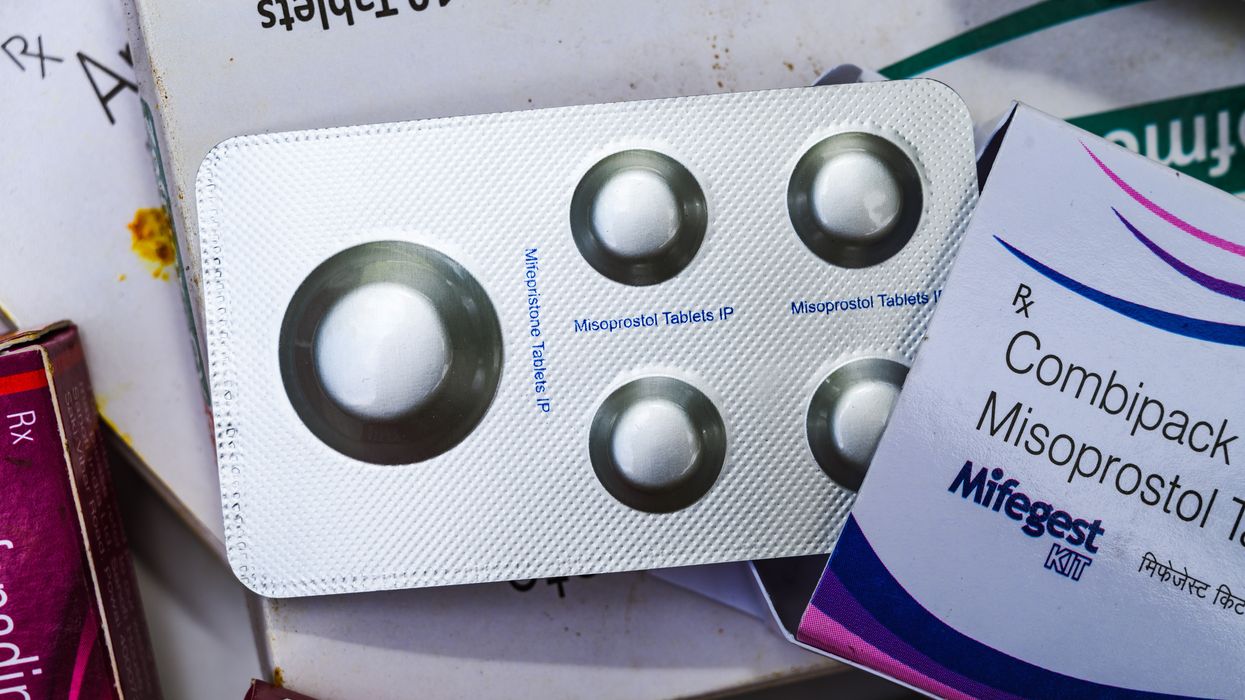Led by Arkansas Attorney General Tim Griffin, 16 state AGs on Tuesday wrote to top congressional leaders from both parties, calling on them to "assess the constitutional authority it may have to preempt shield laws."
Griffin also sent cease-and-desist letters to two entities shipping abortion medication within the United States and two website companies that provide services to LifeOnEasyPills.org. Reporting on the AG's press conference, South Carolina Daily Gazette noted that "if the entities don't cease advertising abortion pills in Arkansas, Griffin said his office may bring a lawsuit against them for violating the state's deceptive trade practices law."
While Griffin also "said he believes what he is asking lawmakers to do is different from a federal abortion ban that the closely divided Congress has seemed hesitant to tackle," according to the Daily Gazette, advocates for reproductive rights disagreed.
Responding to the letter to Congress on social media, the advocacy group Reproductive Freedom for All shared a petition opposing a national abortion ban. It says that Republican President Donald Trump "has proven time and time again that he is out of touch with the 8 in 10 Americans who support protecting abortion rights."
"On the campaign trail he spewed whatever lies he could to get him reelected. Now he'll use the Project 2025 playbook to further restrict our right to access abortion, contraception, fertility treatments, and more," the petition warns. "We must stop him."
In addition to Griffin, the Tuesday letter is signed by the attorneys general of Alabama, Florida, Idaho, Indiana, Iowa, Kansas, Louisiana, Missouri, Nebraska, Oklahoma, South Carolina, South Dakota, Texas, West Virginia, and Wyoming.
The GOP coalition targeted two states, arguing that "when New York or California refuses to respect a criminal prosecution or a civil judgment against an individual who is accused of violating the abortion laws of another state, they are refusing to give full faith and credit to that state's judicial proceedings."
Last December, Texas Attorney General Ken Paxton announced a first-of-its-kind lawsuit against a provider in New York. He sued Dr. Margaret Daley Carpenter, co-founder of the Abortion Coalition for Telemedicine (ACT), for providing two drugs used in medication abortions—mifepristone and misoprostol—to a 20-year-old resident of Collin County.
In February, on the same day that Texas State District Judge Bryan Gantt ordered Carpenter to pay over $100,000 in fines and fees, Louisiana Attorney General Liz Murrill sought to extradite the ACT doctor. Her state classifies mifepristone and misoprostol as dangerous controlled substances.
While Republican Louisiana Gov. Jeff Landry signed the extradition warrant sought by Murrill and the district attorney, New York is one of nearly two dozen states with shield laws for reproductive healthcare, and its Democratic governor, Kathy Hochul, said that "I will not be signing an extradition order that came from the governor of Louisiana—not now, not ever."
On Monday, Paxton took legal action against Taylor Brucka, the clerk in Ulster County, New York, for refusing to make Carpenter pay the $100,000 penalty. Bruck told The Guardian that "it's really unprecedented for a clerk to be in this position" and "I'm just proud to live in a state that has something like the shield law here to protect our healthcare providers from out-of-state proceedings like this."
Meanwhile, another case involving a California doctor emerged in Texas earlier this month: A man filed a wrongful death lawsuit against Dr. Rémy Coeytaux for allegedly mailing to Galveston County medication that his girlfriend used to end her pregnancy. His lawyer is Jonathan Mitchell, an "anti-abortion legal terrorist" who previously served as the state's solicitor general and was the chief architect of its law that entices anti-choice vigilantes with $10,000 bounties to enforce a six-week ban.
Mary Ziegler, an abortion historian and law professor at the University of California, Davis, recently told Mother Jones that "the whole game for Jonathan Mitchell is to get into federal court... both because he wants to shut down doctors in shield law states, like everyone in the anti-abortion movement, and because he wants a federal court to weigh in on the Comstock Act," a dormant 1873 law that criminalized the shipping of "obscene" materials, including abortifacients.




